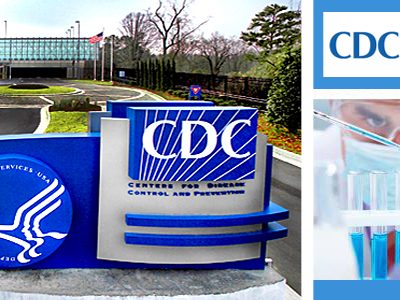A Presidential Game of 20 Questions
Reviewing the candidates answers to Scientific American’s top science policy questions
Yesterday, Scientific American released the answers provided by all four candidates for President to the 20 questions they consider the most pressing when it comes to science policy. The answers are illuminating, to say the least. First, on climate change, the answers of top candidates Hillary Clinton and Donald Trump could not have been more different. Secretary Clinton stated that the science of climate change is “crystal clear,” and laid out three priorities for her administration in battling climate change: increasing renewable energy to 50% of generation, prioritizing energy efficiency and reducing energy use by one third, and reducing oil consumption by one third. She also pointed to her plan for a $60 billion Clean Energy Challenge, funding state and local efforts to boost clean energy production.
Donald Trump’s response was much shorter, and while he did not go so far as to call climate change a “hoax,” he also did not commit to doing anything about it. Essentially, he dodged the question and listed a number of other environmental ills that should get our attention instead. Here is his response in its entirety:
There is still much that needs to be investigated in the field of “climate change.” Perhaps the best use of our limited financial resources should be in dealing with making sure that every person in the world has clean water. Perhaps we should focus on eliminating lingering diseases around the world like malaria. Perhaps we should focus on efforts to increase food production to keep pace with an ever-growing world population. Perhaps we should be focused on developing energy sources and power production that alleviates the need for dependence on fossil fuels. We must decide on how best to proceed so that we can make lives better, safer and more prosperous.
Scientific American plans to grade the candidates’ answers on a pass/fail basis, considering three criteria: whether they answered the question, whether the answer is “well informed with respect to scientific consensus about the issue,” and whether the answer provides specific, workable details. I would be shocked if Trump’s answer earned a pass. Not only does he not answer the question, the tone of the answer mocks the question itself, from putting climate change in quotation marks to the repeated use of the word “perhaps,” implying that he was pointing out the obvious, and that choosing to address climate change would mean ignoring those other issues.
This contrast occurred throughout the questionnaire. One question addressed biodiversity, noting the urgent concern in the scientific community at the rate of species loss. Secretary Clinton provided a general response (relative to her other answers), referring broadly to international collaboration and protecting our national parks. She did offer two specific action items, however. First, she would double the State and Tribal Wildlife Grants program to help state and tribal governments protect species before they become threatened enough for listing under the ESA. Second, she would establish an American Parks Trust Fund, to modernize and increase protection of public lands. Mr. Trump’s response, on the other hand, seems to be answering an entirely different question. He provides cliche tropes about un-elected bureaucrats and government overreach. Here is his full response:
For too long, Presidents and the executive branch of our federal government have continued to expand their reach and impact. Today, we have agencies filled with unelected officials who have been writing rules and regulations that cater to special interests and that undermine the foundational notion of our government that should be responsive to the people. Our elected representatives have done little to uphold their oaths of office and have abrogated their responsibilities. When these circumstances occur, there is an imbalance that rewards special interests and punishes the people who should benefit the most from the protection of species and habitat in the United States. In a Trump administration, there will be shared governance of our public lands and we will empower state and local governments to protect our wildlife and fisheries. Laws that tilt the scales toward special interests must be modified to balance the needs of society with the preservation of our valuable living resources. My administration will strike that balance by bringing all stakeholders to the table to determine the best approach to seeking and setting that balance.
Although he doesn’t say so directly, it is hard to imagine that the “special interests” he objects to are the industries actually threatening biodiversity, namely logging, mineral development, and real estate development. What is more likely is that “special interests” is a euphemism for environmentalists and conservationists.
On energy, Secretary Clinton provided a bullet list of eleven strategies for modernizing the U.S. energy system, including investing in energy efficiency, getting rid of subsidies for oil and gas, and expanding leasing for clean energy projects on public lands. Mr. Trump limited his answer to four sentences and, once again, failed to provide a single, specific policy:
It should be the goal of the American people and their government to achieve energy independence as soon as possible. Energy independence means exploring and developing every possible energy source including wind, solar, nuclear and bio-fuels. A thriving market system will allow consumers to determine the best sources of energy for future consumption. Further, with the United States, Canada and Mexico as the key energy producers in the world, we will live in a safer, more productive and more prosperous world.
In response to a question on ensuring access to clean water, Secretary Clinton not only discussed the water quality crisis in Flint, Michigan and the need to modernize our water infrastructure, she also made water security a top issue. She said her administration would create a Western Water Partnership to fund and modernize water efficiency measures and to increase water reuse and recycling. As a new Californian, it was extremely satisfying to see the urgent water crisis receive much-needed federal attention. Mr. Trump also implied some action on water security, albeit in more vague and worrisome terms:
This may be the most important issue we face as a nation for the next generation. Therefore, we must make the investment in our fresh water infrastructure to ensure access to affordable fresh water solutions for everyone. We must explore all options to include making desalinization more affordable and working to build the distribution infrastructure to bring this scarce resource to where it is needed for our citizens and those who produce the food of the world. This must be a top priority for my administration.
Making desalination more affordable should certainly be part of the conversation, though opinions vary as to how realistic it is. But on a more personal note, his reference to building “distribution infrastructure” to bring water population centers and “those who produce the food of the world” was troubling. Without more detail on what exactly he means, one can only speculate, and my mind immediately goes to the oft-repeated call for massive pipelines to pump water from the Great Lakes to California, also known as the world’s bread basket. Now, he might not have meant that specific project, but he was definitely referring to some massive water transfer. Anyone familiar with the history of water management in California knows that massive water transfers only exacerbate the problem.
Perhaps even more troubling was Mr. Trump’s response to a question about agricultural policy and food security. The question stated: “Agriculture involves a complex balance of land and energy use, worker health and safety, water use and quality, and access to healthy and affordable food, all of which have inputs of objective knowledge from science. How would you manage the US agricultural enterprise to our highest benefit in the most sustainable way?” Mr. Trump responded:
The implication of your question is that there should be central control of American agriculture by the federal government. That is totally inappropriate. The agriculture industry should be free to seek its best solutions through the market system. That said, the production of food is a national security issue and should receive the attention of the federal government when it comes to providing security for our farmers and ranchers against losses to nature.
Considering that there is an entire federal agency devoted to agriculture, it is completely appropriate to ask what a candidate for President’s policy ideas are for that issue. Now, perhaps Mr. Trump does not think there should be a federal Department of Agriculture, but he did not say that.
This article is already too long, so I will decline to go through all twenty questions. I will simply conclude by noting that Mr. Trump’s campaign strategy on science-related policy seems to be the same as for everything else: the vaguer, the better.
I will leave you with Mr. Trump’s shortest responses ….
How will you foster a culture of scientific transparency and accountability in government, while protecting scientists and federal agencies from political interference in their work? …
Science is science and facts are facts. My administration will ensure that there will be total transparency and accountability without political bias. The American people deserve this and I will make sure this is the culture of my administration.
What efforts would your administration make to improve the health of our ocean and coastlines and increase the long-term sustainability of ocean fisheries?…
My administration will work with Congress to establish priorities for our government and how we will allocate our limited fiscal resources. This approach will assure that the people’s voices will be heard on this topic and others.
How will your administration support vaccine science?…
We should educate the public on the values of a comprehensive vaccination program. We have been successful with other public service programs and this seems to be of enough importance that we should put resources against this task.
Reader Comments
One Reply to “A Presidential Game of 20 Questions”
Comments are closed.







Dear Sarah,
It is clear that you want Hillary very very badly, as with almost everyone else on this forum. If wishing and hoping could make dreams come true then she would win. So with great foreboding we must now come to grips with the very cold and harsh circumstances which render these hopes mute. It serves no useful purpose to place blame nor to analyze. Instead we must look inward and muster whatever meager will is left within us to endure the world which lies ahead. This is not what we wanted, it is what we feared, now it is close and getting closer each day. Be strong and know that you are not alone.